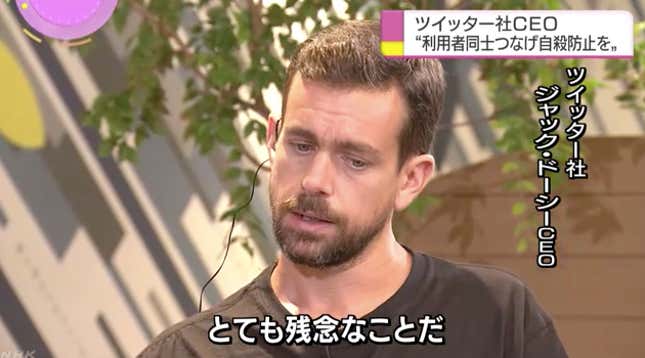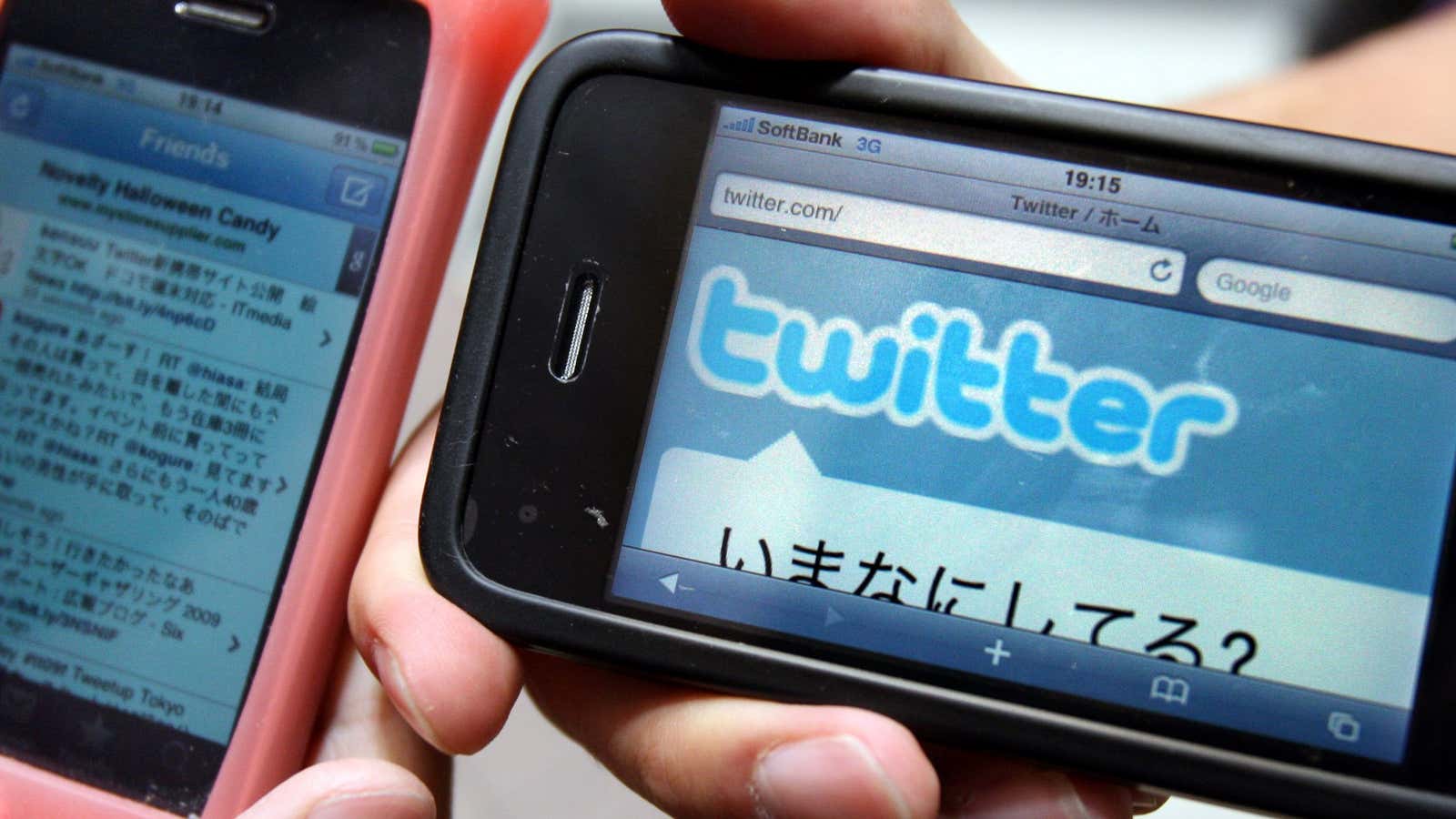An unusually gruesome string of murders in Japan has shaken the country, and it has put Twitter in the spotlight.
As Twitter wrestles with hate speech and fake news, it is also fighting unsavory publicity in Japan after a suspected serial killer—dubbed the “Twitter killer” by Japanese media—allegedly lured victims to his home by seeking out people who expressed suicidal thoughts on Twitter. Last month, police found the dismembered bodies of nine people in the home of the suspect, Takahiro Shiraishi, in Zama, Kanagawa prefecture, just outside Tokyo.
In Japan this week to discuss ways to prevent hate speech on the platform, Twitter CEO Jack Dorsey called the news of the murders “very unfortunate and extremely sad,” according to an interview with public broadcaster NHK (link in Japanese).

“We need to take on a responsibility to make sure that our tool is being used in positive and healthy ways,” said Dorsey. However, he added that since it was unrealistic to remove all tweets expressing suicidal intentions from the social media platform, he hopes to engage in suicide prevention by connecting users with each other, according to translated remarks by NHK.
Recently, Twitter updated its rules regarding posts about self-harm:
You may not promote or encourage suicide or self-harm. When we receive reports that a person is threatening suicide or self-harm, we may take a number of steps to assist them, such as reaching out to that person and providing resources such as contact information for our mental health partners.
The number of suicides in Japan has been steadily decreasing since 2003, but the rate has stayed stable among young people, some say as a result of bullying on social networks like chat app Line.
Japan is one of Twitter’s fastest-growing markets. The country has the second-biggest number of users after the US, and accounted for about 10% of Twitter’s revenue last year. But like in the US, the social network has come under fire in Japan for failing to tackle hate speech, with attention centered around abusive tweets directed at model and actress Kiko Mizuhara (link in Japanese)—who is half American and half Japanese-Korean—after she appeared in an ad campaign for drinks company Suntory that was promoted on Twitter. A group called Tokyo No Hate staged a protest outside Twitter’s Japan’s office in September demanding action by the company against hate speech.
